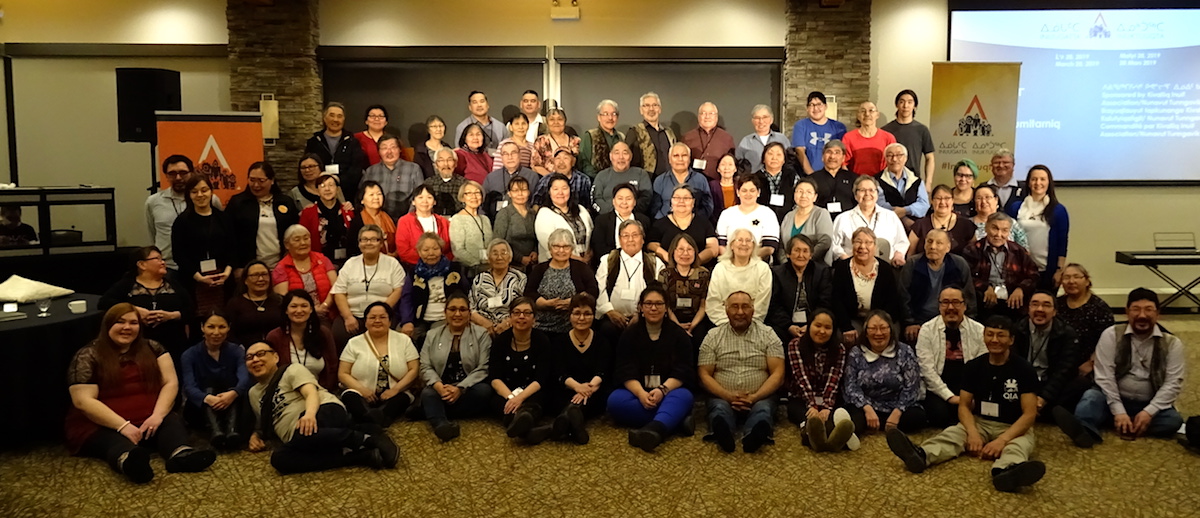On Aug. 9, World Indigenous Day, attention goes to Indigenous languages
“In Canada and beyond, these languages are disappearing at an alarming rate.”

Friday, Aug. 9, the world marks the International Day of Indigenous Peoples, proclaimed by the United Nations in 1994 to celebrate the progress and achievements worldwide for Indigenous peoples and their rights.
This year, the day’s theme highlights the need “to revitalize, preserve and promote Indigenous languages to safeguard the life of Indigenous cultures for future generation,” according to a news release from the U.N.
The U.N. said it chose this theme to help create awareness about the precarious state of many Indigenous languages.
In 2016, about 2,680 Indigenous languages were reported to be in danger and on the verge of becoming extinct.
“Languages play an essential role for Indigenous communities around the world. From sharing knowledge, to connecting communities, to passing culture and ways of life from one generation to the next, languages are fundamental to Indigenous identities and self-determination,” Prime Minister Justin Trudeau said in a statement on Aug. 9.
“Yet in Canada and beyond, these languages are disappearing at an alarming rate. This loss threatens the cultures, traditions, self-determination, and survival of the Indigenous peoples who speak them.
That is why our government has worked closely with Indigenous peoples to co-develop legislation to support the efforts of Indigenous peoples to reclaim, revitalize, maintain and strengthen Indigenous languages.”
A recent Statistics Canada study found that in Nunavut, while the percentage of Inuit in the territory has remained stable, the percentage of those who speak Inuktut at home has decreased.
And the government’s Indigenous Languages Act, which received royal assent this past June, doesn’t go far enough in supporting Inuktut, Inuit leaders have said.
Inuit Tapiriit Kanatami slammed the act’s lack of Inuit-specific content and called it “yet another legislative initiative developed behind closed doors by a colonial system and then imposed on Inuit.”
Critics noted that the law does not provide federal recognition of Inuktut as an official language within the four regions of Inuit Nunangat and requires that Inuit use English or French to gain access to federal services throughout Inuit Nunangat, even where Inuktut speakers make up the majority of the population.
In his statement, Trudeau also recognized the injustices Indigenous peoples have faced in Canada and continue to face around the world.
“While we cannot change history, we are working to right persisting historic wrongs.”
Working with Indigenous partners, Canada has taken steps to close the gaps in housing, health, education, and opportunity for Indigenous communities across the country, he said.
“We’re also supporting Inuit-led approaches to eliminating tuberculosis across Inuit Nunangat by 2030,” he said.
“In the spirit of reconciliation, we will continue to work with Indigenous peoples toward a renewed relationship based on the recognition of rights, respect, cooperation, and partnership.
On behalf of the Government of Canada, I encourage everyone to learn more about the cultures and languages of Indigenous peoples, here in Canada and around the world.”
There are between 370 and 500 million Indigenous people in the world, living across 90 countries.
For many of them, Aug. 9 is an occasion to highlight the threats and discrimination they continue to face every day in their struggle for survival, as protective mechanisms and laws in many places are not fully or correctly implemented, said the International Working Group on Indigenous Affairs.
In 2017, Indigenous people made up around half of all environmental and human rights defenders killed, the IWGIA said.